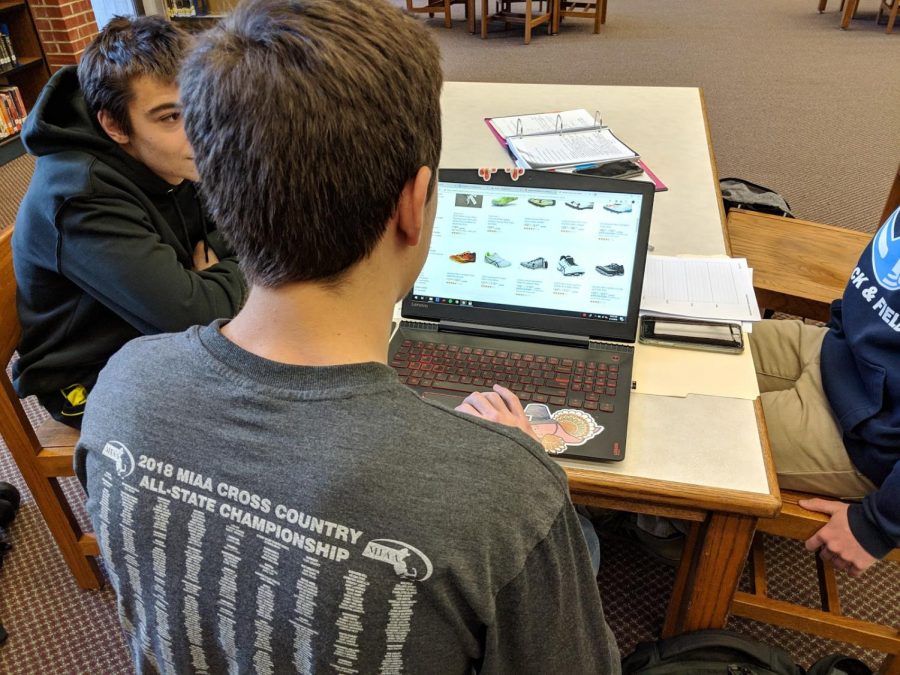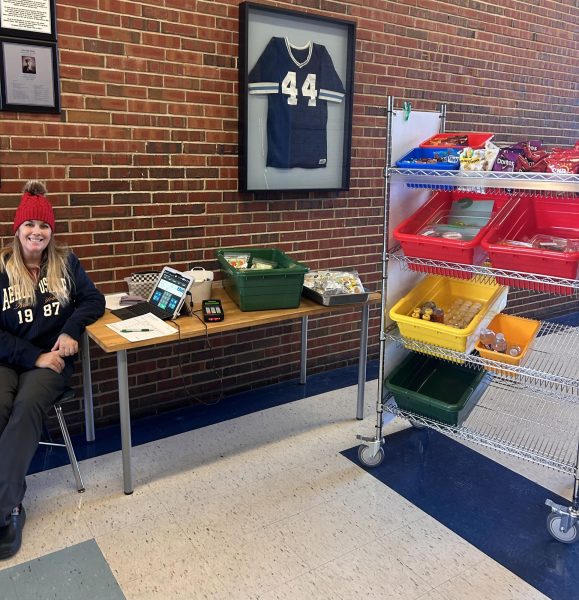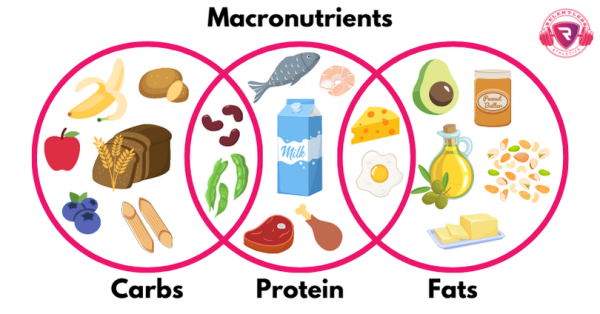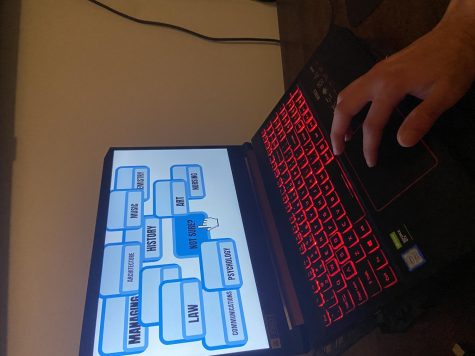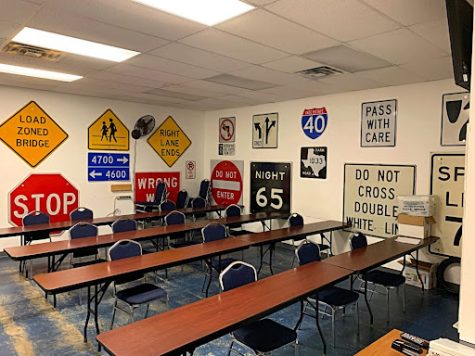Is Amazon Too Big for its Britches?
An In-Depth Look at Amazon’s Current Place in Today’s Business World
Senior Diego Fernández using Amazon to look for running shoes.
This is the transcript for our podcast. Click here to hear the podcast, or the logo below.

Listen to a Podcast of this article by clicking the Image
Hello, our names are Joshua Lind and Michael Fish of the Triton Voice. I, Josh Lind, will be your host. Today, we will be talking about everyone’s online marketplace, Amazon, and more specifically, whether, in our guests’ opinions, it is too powerful in today’s economy.
Amazon sells an astonishing 608 million packages a year, which equates to roughly 1,660,000 per day, which is enough for each of the 6.86 million people in Massachusetts to get 88 packages. Amazon is worth roughly $771 billion *NOISE OF CASH REGISTER* in stocks as of this moment. This is a bit of a jump from the humble beginnings of an online book store, selling books *NOISE OF PAGE TURNING* and, eventually, the first Kindle; a device that allows users to have an infinite library in the palm of your hands. From there, the company skyrocketed into what we know it as today; a multi-billion dollar company, with world-wide effects.
Diego Fernandez is a senior at Triton High School and is a regular user of Amazon. He is one of the 95 million Amazon Prime members according to statista.com. There are millions of Amazon users each day, and the average person without Prime membership is said to spend $600 annually.
(DIEGO) “I use it [Amazon] often, probably a few times a month.” (“What do you use it to buy?”) “Pretty much anything that I need. It’s easier to order off of Amazon than anything else. It’s easier than going to a store.”
Tirth Patel is a senior at Triton High School and has spent some time looking into Amazon’s stocks and actions in the past because of his interest in the subject.
(TIRTH) “I’ve traded stocks in the past. Amazon has a large amount of market power and typically engages in predatory practices to undercut competitors. Do I think they’re too big? No. They are as large as they are because of their practices.”
Mr. Richard Fisher is the Business Law teacher at Triton, in addition to a few other classes. Fisher also had a take on this topic.
(FISHER) “It is gonna crush it’s competitors, that’s capitalism. So the idea is to make a better product than your competitors. The idea is to crush some companies, so some companies are gonna get hurt.”
And later:
(FISHER) “They are in the business of putting other people out of business.”
Take, for example, Diapers.com. It was a subscription service where parents could get a recurring shipment of diapers and other necessities. Bezos noticed the business and went after it.
Amazon started tracking their prices; if Diapers.com lowered their prices, so did Amazon, in retaliation. Amazon, at one point, was on track to lose $100 million in the diaper category alone. In 2010, Quidsi, the parent company of Diapers.com, finally sold themselves to Amazon.
According to Brad Stone, a journalist who has written a book about Amazon, said that “When Bezos’s lieutenants learned of Wal-Mart’s counterbid, they ratcheted up the pressure, telling the Quidsi founders that [Bezos] was such a furious competitor that he would drive diaper prices to zero if they sold to Bentonville… The Quidsi executives stuck with Amazon, largely out of fear.”
In April of 2017, Diapers.com was shut down. Bezos claimed the company had not been able to be profitable.
Mr. Richard Dube is a veteran math teacher at Triton High School, and has invested a lot of time into the stock market.
(DUBE) “Too big to fail? No, they’re not too big to fail. But they are – they have a significant portion of the market… and that’s the issue. They could fail, other people will pick it up. It’s not like a bank that’s gonna have things – if they fail, people are still gonna buy their stuff at Walmart, other online players, staples, wherever they gotta go. They’re about 50% of the online market… and the online market is about 20% of the total market – so that they’re about 10% of the total market. They can fail. It wouldn’t be an issue.”
Since Amazon is a multi-billion dollar company, one would think that the working environment would be comfortable. As it turns out, this is not the case. Some workers have come out with saying that the working conditions are horrible. Some employees report that in order to meet the demanding deadlines, they wouldn’t use the bathroom; they would urinate in bottles.
According to TheVerge.com, “74 percent of workers avoid using the toilet for fear of being warned they had missed their target numbers.” They went on to say that “rising goals have also taken a toll on employees’ mental health, as 55 percent of them report having suffered depression since working at Amazon. Over 80 percent of workers said they would not apply for a job at Amazon again.”
To try to mediate the controversy, in October of 2018, Amazon raised its minimum wage for all employees to $15 an hour. However, the raise was not what met the eye. In exchange for the increase in wage, Amazon workers lost monthly bonuses and stock options. This shift would make full-time workers earn less money after the wage boost.
Fisher said he wished he had more time to look into Amazon, however, he said he has looked into Amazon in the past and knows a bit about what goes on behind the scenes with how Amazon treats their workers.
(FISHER) “From what I understand, they’re a really tough employer. They squeeze as much as they possibly can out of their employees, to the point I have read articles that suggest they aren’t even being fair to their employees. Taking advantage of people in other countries with lower wage structures and less regulations as far as how many hours they can work.”
Looking past their practices and how they treat their employees, he said that a good thing about Amazon is that they are constantly innovating how they operate.
(FISHER) “They are reinventing retail. Their shipping strategies, the idea is to get them as efficient as possible, so they are inventing efficiency, and people are copying what they are doing. They are starting to automate warehouses. I think they are trying robots. It’s where retail is going.”
In the grand scheme of things, Fisher said that we really have to wait and see how it plays out to determine its’ full effects and if it is a good thing or not.
(FISHER) “As with most things, there’s pros and cons. I think probably the key question is what’s gonna win out? Is this actually good for, and then again, you kinda have to categorize it; is it good for the countries? Is it good for the economy? Is it good for the world? And those are some pretty big-and-tough-to-answer questions.”
Amazon shows no sign of slowing down, and recently acquired Whole Foods, which is one of the most well-known supermarket names out there, known for its’ organic food and high prices.
However, Bezos just started the process of a divorce with his wife, and is going to lose half of everything he owns. This could spell some changes in the company, considering MacKenzie Bezos would be the largest independent shareholder of Amazon. This could mean that she would have more control and be able to push more changes into Amazon that are out of Jeff Bezos’ control. That could mean big things for Amazon in the future, or it may mean nothing at all and MacKenzie Bezos will be dormant in terms of the companies operations.

My name is Michael Fish, a senior at Triton High School and a staff writer for the Triton Voice. I am interested in writing about stories that will help...

My name is Joshua Lind. I am a 17-year-old, tri-citizen senior at Triton High School. I am currently taking Mr. Allen's journalism class. I like to write...


